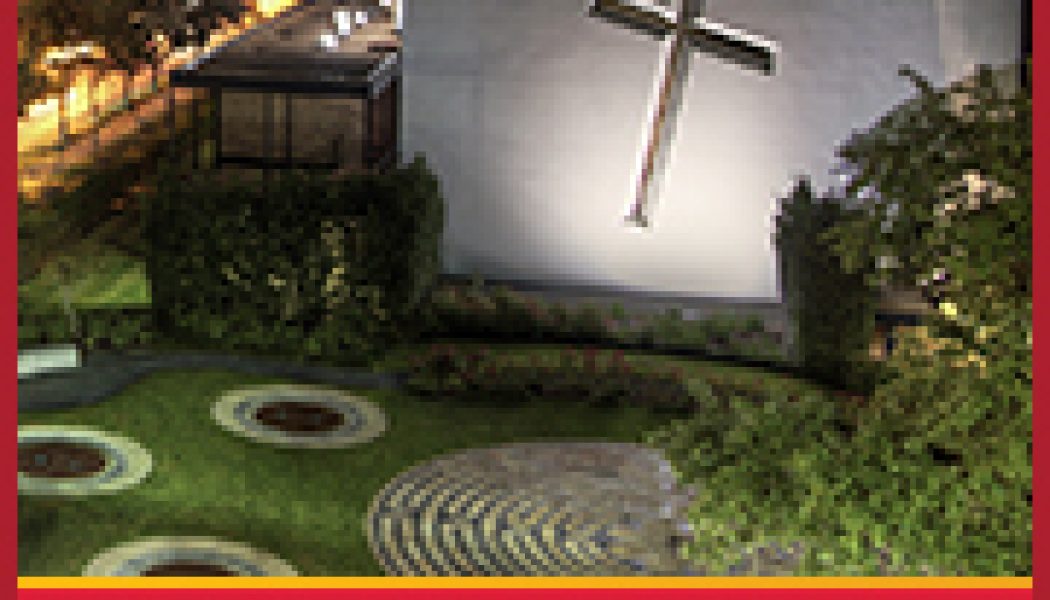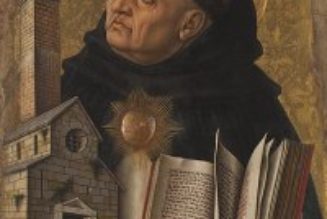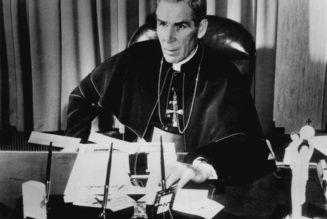“I revealed your name to those whom you gave me out of the world. They belonged to you, and you gave them to me, and they have kept your word. . . .And now I will no longer be in the world, but they are in the world, while I am coming to you.” (Jn 17:6, 11) These verses from our Lord’s High Priestly Prayer (Jn 17) reveal three truths to consider as we look ahead to Pentecost.
First, we are not of this world. Jesus prays to His Father, “I revealed your name to those whom you gave me out of the world.” (Jn 17:6) He is speaking about the Apostles primarily, but also about us. It’s not the only time He speaks of such alienation from the world. He had told the Apostles earlier at the Last Supper, “[Y]ou do not belong to the world, and I have chosen you out of the world.” (Jn 15:19) And again in prayer to His Father, “They do not belong to the world any more than I belong to the world.” (Jn 17:16)
We have perhaps forgotten this “out of the world” part of the Christian life. We found some measure of security and prosperity in the world, so we grew comfortable and sought to make a home here. Science, money, and government-provided, much-desired stability and security. We gave science a mystic authority, like a primitive people believing in the medicine man. We trusted in the power of money and of the state to keep us from all ills. We made gods out of them, willingly sacrificing for the security they could provide. Predictably, they came to act like false gods, demanding more and more.
If we forgot, the pandemic has made it painfully clear that we’re not of this world. Both the illness and its economic and political wreckage have revealed the fragility of this world’s powers. Those false gods have failed us spectacularly. Indeed, at times, they have exacerbated the problem. In a sense, it’s not their fault. We never should have expected what they cannot deliver.
More importantly, we should not have tried to settle here. If nothing else, the pandemic has caused us to feel acutely an alienation from this world – a fallen, fragile place, a valley of tears. We have here no lasting city. The more we settle here, the more unsettled we will be.
Second, it’s not enough to regard ourselves as “not of this world.” Without the supernatural outlook, that thought produces a brittle, contrarian spirit – a mindset that defines itself by what it is not, that decides according to its opposite. It is always reacting, never acting.

Notice our Lord’s prayer: “I revealed your name to those whom you gave me out of the world.” We are out of the world because we have been given by the Father to the Son. Our separation from and opposition to the world is secondary. Primary is the truth that we have been raised beyond the world, to the intimacy of the Father and Son. We are not so much against the world as alienated from it because in Christ we have gone beyond it.
Third, we’re still in the world. “And now I will no longer be in the world, but they are in the world, while I am coming to you.” (Jn 17:11) Although not of the world, this world is the theatre of our work and struggles. We cannot quit the world. This is a fundamental challenge in the Christian life: to be in the world but not of it, even as we continue our work and life in it. The task is to hold both truths together in a reasonable balance.
Our risen Lord gives us an image of this being at once out of the world and in the world. In those forty days between Easter and the Ascension, He made clear to His disciples that He was so given to the Father that the world cannot hold Him. “Stop holding on to me,” He says to Mary at the tomb, “For I have not yet ascended to the Father.” Further, the world’s material limits mean nothing to Him. He comes and goes, appears and disappears, as He pleases.
At the same time, by word and action, He was truly present and real in the world. “He showed them his hands and his side.” (Jn 20:20) “Put your finger here and see my hands, and bring your hand and put it into my side.” (Jn 20:27) “Look at my hands and my feet, that it is I myself. Touch me and see, because a ghost does not have flesh and bones as you can see I have.” (Lk 24:39) This was no apparition or phantasm but a real presence in the world.
It’s the life of the risen Christ that we live: one given completely to the Father and yet truly present in the world.
Today’s Gospel comes at a peculiar and somewhat forgotten time in the liturgical year: the Sunday between the Ascension and Pentecost. Consider the mindset of the disciples gathered in the upper room. Having just seen their Lord ascend, they know that they will never again be at home in this world. He Who is their life has gone ahead to prepare a place for them.
Yet they couldn’t just keep their heads in the clouds. He had commanded them to await “the promise of the Father” that would make them His witnesses “in Jerusalem, throughout Judea and Samaria, and to the ends of the earth.” (Acts 1:4, 8) In other words, to remain and labor in this world.
We should keep these truths in mind as we continue to prepare for the gift of the Spirit at Pentecost. He comes to bring us out of this world that we’re in, to make us simultaneously in heaven and in the world.
*Image: The Supper at Emmaus by Caravaggio (Michelangelo Merisi), 1602-03 [National Gallery, London]. Luke 24: “30 When he was at the table with them, he took bread, blessed and broke it, and gave it to them. 31 Then their eyes were opened, and they recognized him; and he vanished from their sight.“










